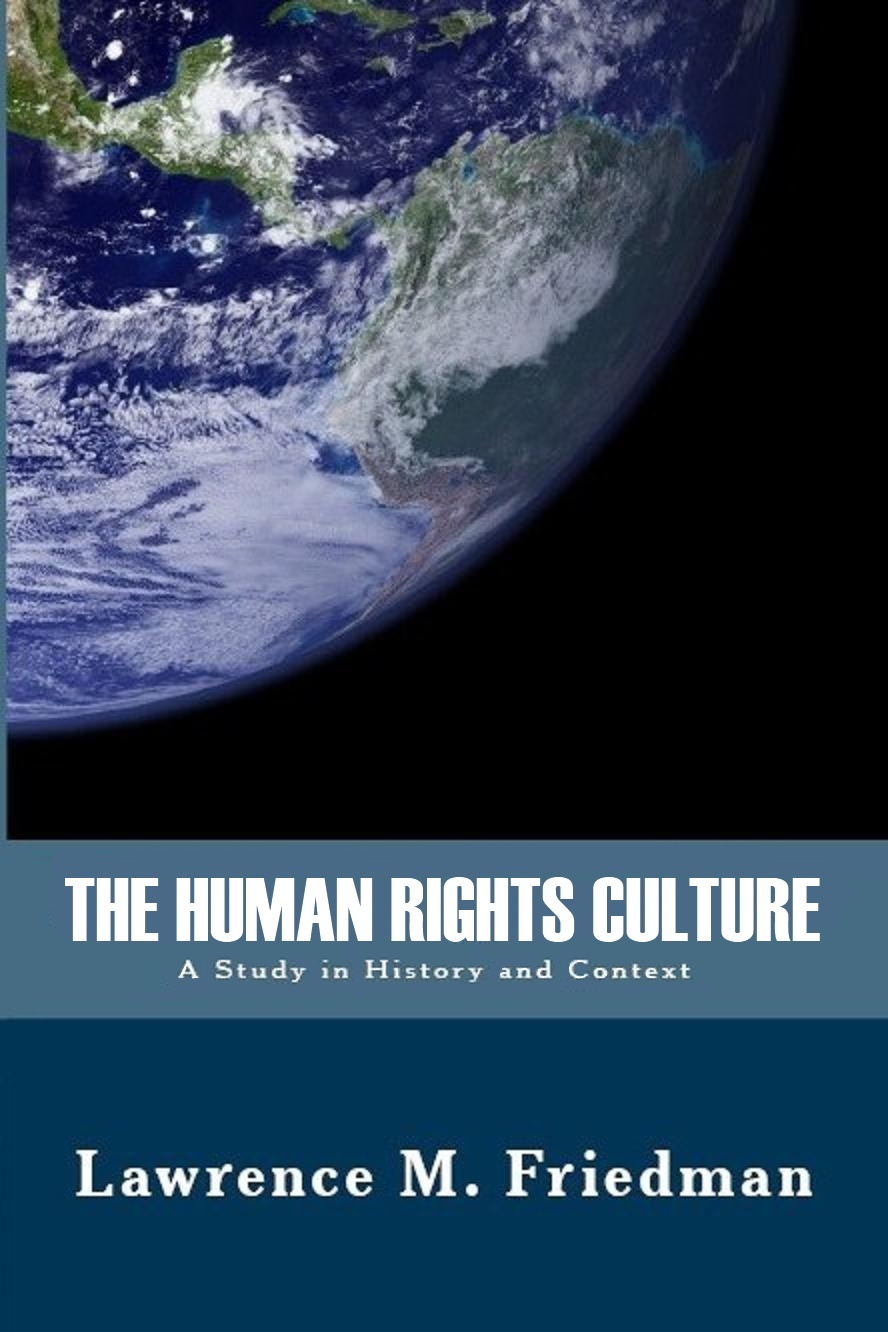Lawrence M. Friedman's newest book explores the sheer phenomenon of a near-global arc favoring the idea, and sometimes even the practice, of human rights. Not the typical legal or philosophical examination of rights, this book instead asks: Why is it - as a social and historical matter - that rights discourse is so prevalent and compelling to the current world?Correction to earlier post: Quid Pro Books brings out works simulaneously in muliple platforms. For Lawrence's book, it is appearing at virtually the same time in hardback, paperback, Kindle and other e-book platforms. So although the press appears to be very forward-looking regarding the digital future, is it also an old-fashioned paper-ink-and-binding press. So this may be a step into the digital future, but the revolution is not yet at hand.
"Reams of books and articles have been written about human rights, but THE HUMAN RIGHTS CULTURE is unique. It is the first comprehensive, sociological study of human rights in the contemporary period. With his characteristic erudition and graceful style, Lawrence Friedman addresses all the central topics: women's rights, minority rights, privacy, social rights, cultural rights, the role of courts, whether human rights are universal, and much more. This surprisingly compact book presents a balanced discussion of each issue, filled with fascinating details and examples. Friedman's core argument is that the recent rise of human rights discourse around the globe is the product of modernity - in particular the spread of the cultural belief that people are unique individuals entitled to respect and the opportunity to flourish. This terrific book will be informative not only to human rights experts and practitioners but also to people who wish to read a clear and sophisticated introduction to the field." - Brian Z. Tamanaha, Professor of Law, Washington University
Lawrence Friedman is the Marion Rice Kirkwood Professor of Law at Stanford University. His latest book joins Quid Pro's Contemporary Society Series.
Quid Pro's mark in legal history is not only through new work's like Lawrence's but also in keeping older titles accessible, including G. Edward White, Patterns of American Legal Thought and Kitty Calavita, Inside the State.
